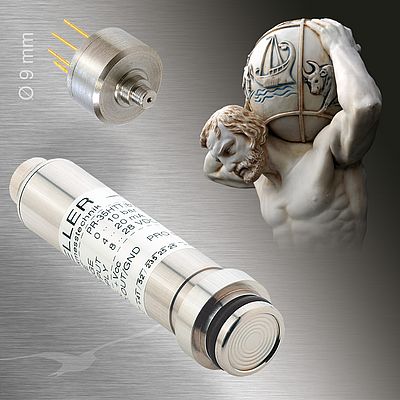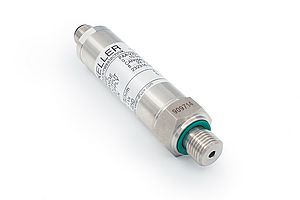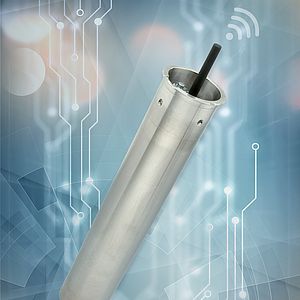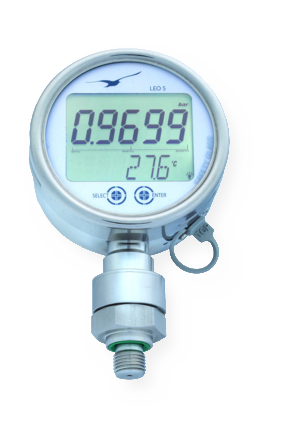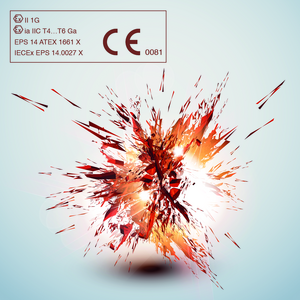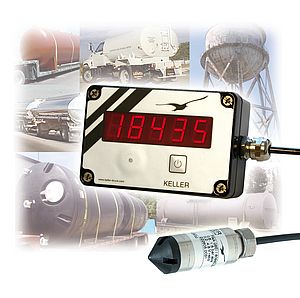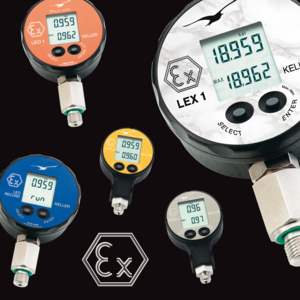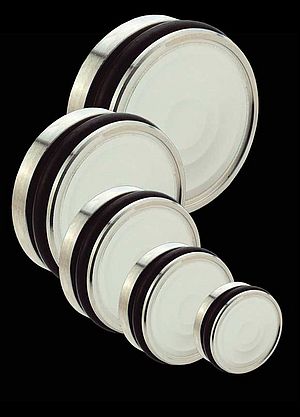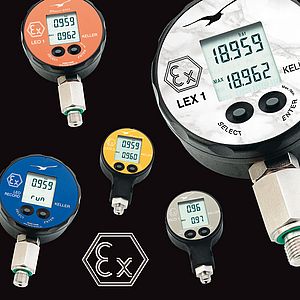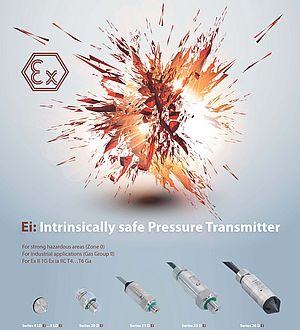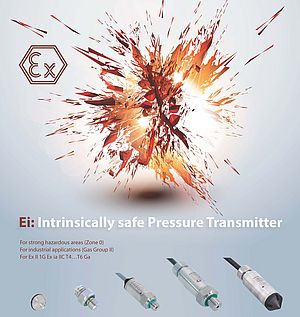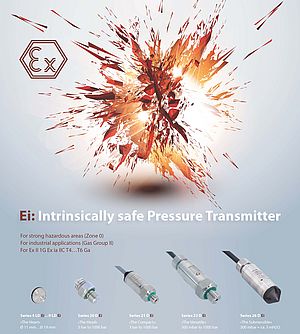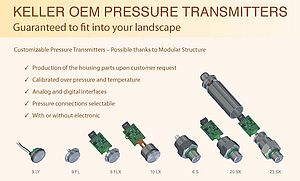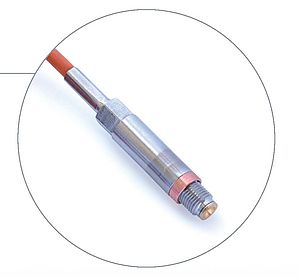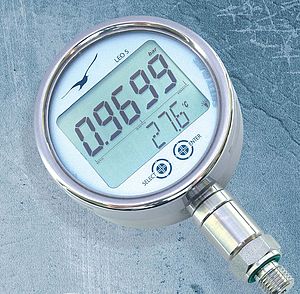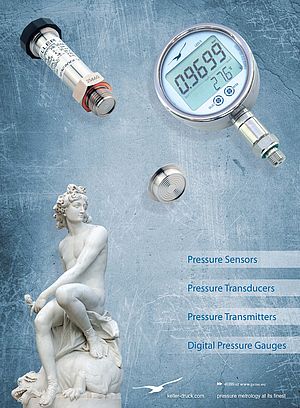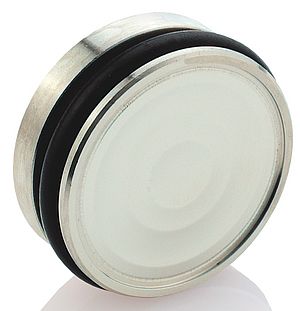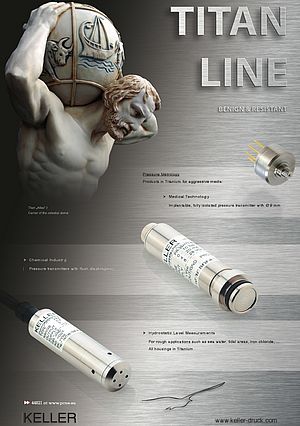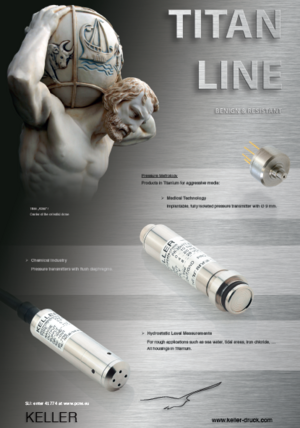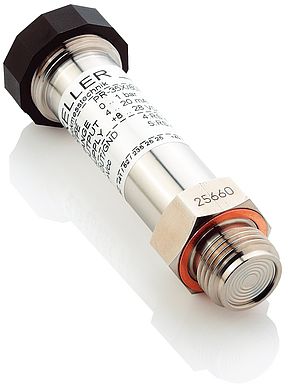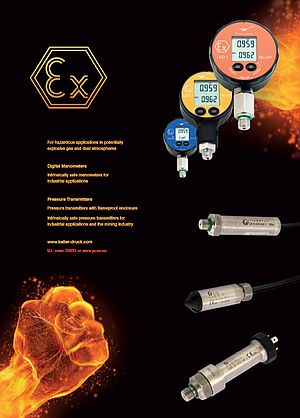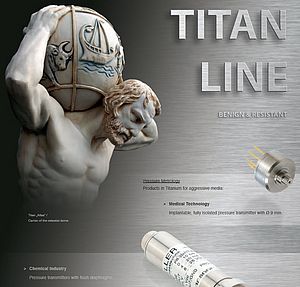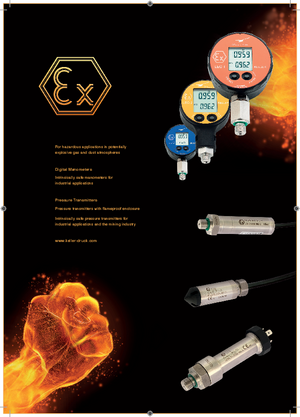Components made of titanium will not corrode even in salt water or chlorinated water, unlike the high-grade steels that are normally used in the sector. This is why titanium is more frequently chosen for process measurement technology applications involving wastewater that may be contaminated with unknown corrosive substances. A titanium housing makes it possible to carry out hydrostatic level measurements effectively in brackish water, or even in iron chloride.The implantable pressure transmitters and pressure sensors (Ø 9 mm) are made of corrosion-proof titanium. If a sensor of this sort is made of steel, it can only be exposed to temperatures up to a maximum of 60 °C. At higher temperatures, the heat-induced expansion of the oil causes so much deformation of the steel diaphragm that it no longer returns to its original position. By contrast, the titanium diaphragm shows no deformation up to 120 °C, which also makes stability errors much less likely than in products with steel diaphragms. This is because the modulus of elasticity is only half as high.


